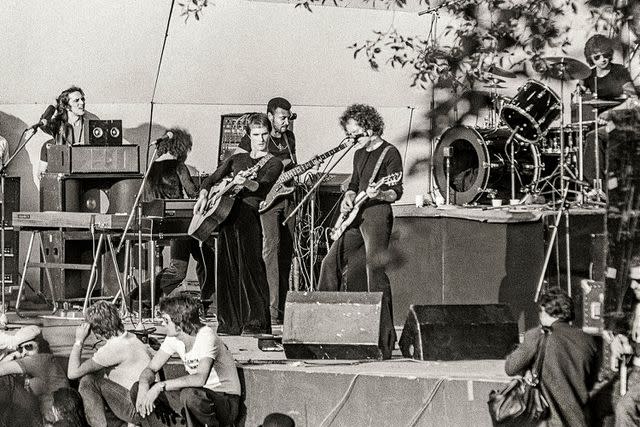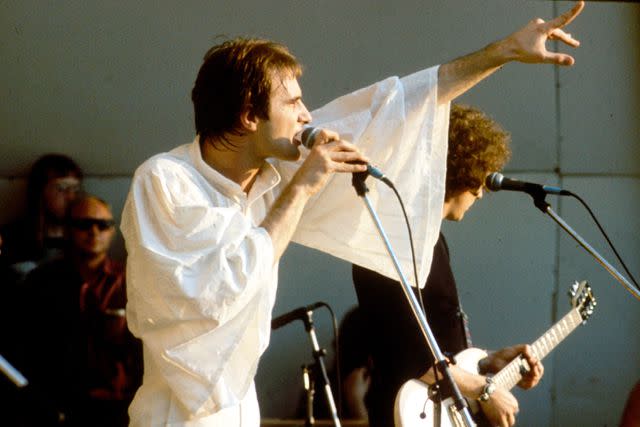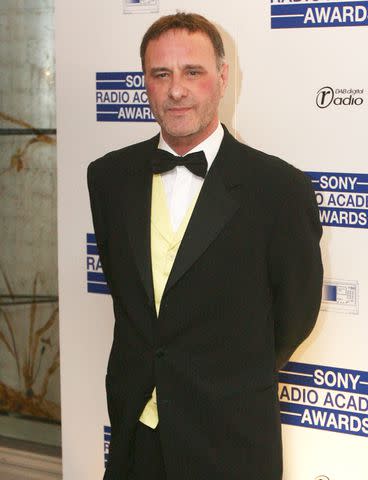Steve Harley, Cockney Rebel Frontman and 'Make Me Smile (Come Up and See Me)' Singer, Dead at 73
The British rocker's U.K. No. 1 hit "Make Me Smile (Come Up and See Me)" has been covered over 100 times since its 1975 release

Lorne Thomson/Redferns
Steve Harley performing at Rewind Festival in Perth, Scotland on July 23, 2017Steve Harley of the British glam-rock band Cockney Rebel, which released the U.K. No. 1 hit “Make Me Smile (Come Up and See Me),” has died. He was 73.
The musician’s death was confirmed by his family on Sunday, who shared a statement to the official Harley and Cockney Rebel Facebook page.
While a cause of death was not revealed at this time, the late rocker shared in a statement to his website and social media in mid-February that he was canceling all tour dates for the foreseeable future “due to on-going treatment for cancer.”

Roberto Ricciuti/Redferns
Steve Harley performing at SEC Armadillo on March 5, 2022 in Glasgow, ScotlandRelated: Paying Tribute to the Celebrities Who Have Died in 2024
In a statement posted along with family photos, Harley’s family wrote, “We are devastated to announce that Steve, our wonderful husband, father and grandfather, has passed away peacefully at home, with his family by his side.”
“The birdsong from his woodland that he loved so much was singing for him. His home has been filled with the sounds and laughter of his four beloved Grandchildren,” the statement continued. “Stephen. Steve. Dad. Grandar. Steve Harley. Whoever you know him as, his heart exuded only core elements. Passion, kindness, generosity, and much more, in abundance.”
His family added, “Steve took enormous comfort from all of his fans’ well wishes during his battle, and we know he would want to thank you all deeply for your love and support throughout his career, and during his battle to the end,”
“We know he will be desperately missed by countless friends, family and devoted fans all over the world, and we ask that you respectfully allow us privacy to grieve,” the statement concluded.

Dick Barnatt/Redferns
Steve Harley and Cockney Rebel performing at Crystal Palace Garden Party in London on June 7, 1975Harley is best known for co-founding the British glam-rock outfit Cockney Rebel, which spawned a cult-loved No. 1 hit in the U.K., “Makes Me Smile (Come Up and See Me).”
According to his official biography, Harley was born on Feb. 27, 1951 in London and became especially interested in music and poetry while being bedridden and treated for polio during his childhood.
While pursuing a career as a journalist, Harley began performing folk music across London in the early ‘70s, which is where he met fellow musician John Crocker. After a stint busking together, the two departed the folk-rock scene and co-founded Cockney Rebel in 1972.

Michael Putland/Getty
Steve Harley and Cockney Rebel performing at Crystal Palace Bowl in London on June 7, 1975After receiving a record deal with EMI, the group released their debut The Human Menagerie to acclaim in 1973, spawning a hit across Europe with the lead single “Sebastian.”
Never miss a story — sign up for PEOPLE's free daily newsletter to stay up-to-date on the best of what PEOPLE has to offer, from celebrity news to compelling human interest stories.
Following the release of their sophomore album, 1974’s The Psychomodo, the lineup of Cockney Rebel shifted and became Harley’s solo project. Billed as Steve Harley & Cockney Rebel, the singer-songwriter released four more albums, including 1975’s The Best Years of Our Lives, which featured “Make Me Smile (Come Up and See Me)."

Richard Lewis/WireImage
Steve Harley at the 2006 Sony Radio Academy Awards in LondonThe track was Harley’s first-ever major chart-topping success, reaching No. 1 in the U.K. and across Europe, while cracking the Hot 100 in the U.S. Since then, the song has been covered over 100 times, including by artists such as Duran Duran and Erasure, and appeared on soundtracks for movies like 1997’s The Full Monty and 1998’s Velvet Goldmine.
Other charting hits from the group included “Judy Teen,” "Mr. Raffles (Man, It Was Mean)” and a cover of The Beatles’ “Here Comes the Sun,” among others.
Following the 1976 releases of Timeless Fight and Love’s a Prima Donna, Harley spent much of the ‘80s raising his two children with his wife, and resumed touring and appeared in theater productions in later years.
For more People news, make sure to sign up for our newsletter!
Read the original article on People.
